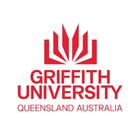Bachelor of Computer Science
- Posted by Griffith University
- Home
- Courses
- Griffith University
- Bachelor of Computer Science
Bachelor of Computer Science
Computer Science is a dynamic and developing field that is increasingly pervading every aspect of society. In this program you will learn the fundamental principles underpinning computer science and learn practical software technology development skills for many different platforms and applications. You will have the choice of studying topics such…
Categories
COURSE DESCRIPTION
Computer Science is a dynamic and developing field that is increasingly pervading every aspect of society. In this program you will learn the fundamental principles underpinning computer science and learn practical software technology development skills for many different platforms and applications.
You will have the choice of studying topics such as Programming Languages, Distributed Computing, Computer Architectures, Algorithms and Operating Systems, Machine Learning, Intelligent Systems, Robotics, Programming for Web, Mobile and Embedded Applications, Scientific Computing, Visualisation and Big Data Mining, and Analytics. You can choose between one of two majors and also select from a range of elective courses. In the last year of your studies, you will complete a practical project for industry or research placement providing first-hand experience of the knowledge, skills and attributes required to succeed in full-time employment.
My career opportunities
This program prepares students for careers as software developer, computer programmer, web and mobile applications developer, data scientist, software engineer, systems analyst, computer games programmer, software systems architect, computer scientist, computer systems engineer.
REQUIREMENTS
Standard academic entry to our undergraduate degrees requires completion of secondary school comparable to Australian Year 12 or equivalent academic achievement.
English language requirements apply to International applicants and other applicants whose previous study was undertaken in a language other than English. The minimum English language requirements for such applicants for entry to this program are as follows:
- A minimum overall band score of 6.5 on IELTS (Academic) with no sub-score of less than 6.0
- OR a minimum score of 575 on TOEFL
- OR an internet-based (iBT) TOEFL score of 79 (no sub-score less than 19)
- OR no score less than 3+ in each skill of the ISLPR (conducted by ISLPR Language Services only)
- OR a minimum overall score of 176 (no score less than 169) on C1 Advanced (formerly Cambridge Certificate in Advanced English) or C2 Proficiency (formerly Cambridge Certificate of Proficiency in English)
- OR an overall score of 58 in the Pearson Test of English (Academic) with no score less than 50.
EDUCATIONAL INSTITUTION
Griffith University is ranked in the top 2% of universities worldwide and strives to create a brighter future for all by prioritising innovation and social impact. We are committed to providing international students with quality education, guidance, and support. With Australia’s most awarded teachers, Griffith University offers a full suite of undergraduate, postgraduate and research degrees in areas including architecture, construction, and planning; business and government; criminology and law; education; engineering, IT and aviation; humanities, languages and social science; medicine, dentistry and health; music and performing arts; science and environment; visual and creative arts.
Griffith University is ranked in the top 2% of universities worldwide and strives to create a brighter future for all by prioritising innovation and social impact. We are committed to providing international students with quality education, guidance, and support.
With Australia’s most awarded teachers, Griffith University offers a full suite of undergraduate, postgraduate and research degrees in areas including architecture, construction, and planning; business and government; criminology and law; education; engineering, IT and aviation; humanities, languages and social science; medicine, dentistry and health; music and performing arts; science and environment; visual and creative arts.




